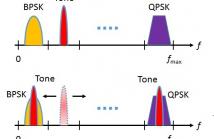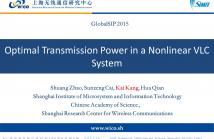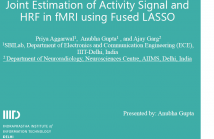
The IEEE Global Conference on Signal and Information Processing (GlobalSIP) is a flagship conference of the IEEE Signal Processing Society. GlobalSIP'15 will be held in Orlando, Florida, USA, December 14-16, 2015. The conference will focus on signal and information processing with an emphasis on up-and-coming signal processing themes. The conference will feature world-class speakers, tutorials, exhibits, and sessions consisting of poster or oral presentations. Outstanding papers will be selected for Best Paper Awards or Best Student Paper Awards; a paper is eligible for a best student paper award if the first author of the paper is a student. IEEE Signal Processing Society and National Science Foundation will provide travel grants to eligible students.
- Read more about Temporal Alignment for Deep Neural Networks
- Log in to post comments
- Categories:
 4 Views
4 Views- Read more about Sparse Phase Retrieval Using Partial Nested Fourier Samplers
- Log in to post comments
- Categories:
 5 Views
5 Views- Read more about Gait Analysis using a Single Depth Camera
- Log in to post comments
Gait analysis is often used as part of the rehabilitation program for post-stoke recovery assessment. Since current optical diagnostic and patient assessment tools tend to be expensive and not portable, this paper proposes a novel marker-based tracking system using a single depth camera which provides a cost-effective solution suitable for home and clinic use. The proposed system can simultaneously generate motion patterns even within a complex background using the proposed geometric model-based algorithm and autonomously provide gait analysis results.
- Categories:
 14 Views
14 Views
- Read more about Cyclo-Stationary based Jammer Detection Algorithm for Wide-band Radios using Compressed Sensing
- Log in to post comments
- Categories:
 5 Views
5 Views- Read more about Channel-Robust Compressed Sensing via Vector Pre-Quantization in Wireless Sensor Networks
- Log in to post comments
This paper addresses channel-robust compressed sensing (CS) acquisition of sparse sources under complexity-constrained encoding over noisy channels in wireless sensor networks. We propose a single-sensor joint source-channel coding method based on channel-optimized vector quantization by designing a CS-aware encoder-decoder pair to minimize the end-to-end mean square error (MSE) distortion of the signal reconstruction. As our key target is to obtain tolerable encoding complexity at the resource-limited sensor, the method relies on vector pre-quantization of the measurement space.
- Categories:
 5 Views
5 Views
- Categories:
 9 Views
9 Views- Read more about Spatio-Temporal Depth Data Reconstruction from a Subset of Samples
- Log in to post comments
- Categories:
 2 Views
2 Views
- Read more about A Video Haze Removal System on Heterogeneous Cores
- Log in to post comments
In this paper, we propose a video haze removal system that can be used to assist vehicle drivers and autonomous vehicles in hazy weather conditions. Our design objectives are to provide a high speed system with high perceived resolution that can be integrated in vehicle dashboard. We achieved these objectives by targeting TMS320DM6446 platform, where we propose a distribution of the tasks of the algorithm among the heterogeneous processor cores: ARM, DSP, and VICP.
- Categories:
 22 Views
22 Views
